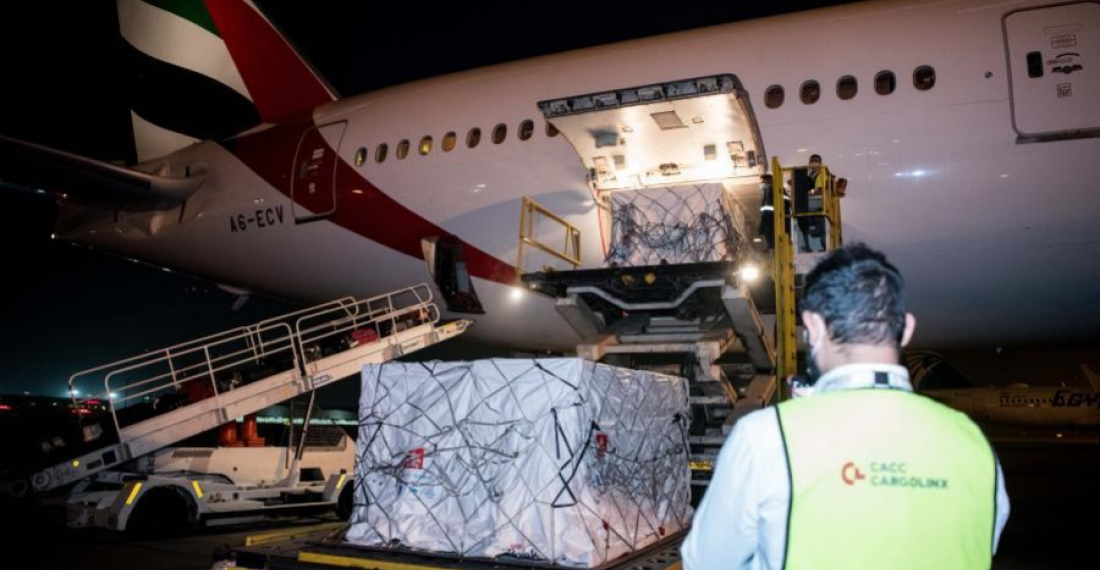After several global manufacturers and developers announced the successful trial of COVID-19 vaccines, countries in the Middle East are joining a global race to bring an end to the pandemic. Bahrain, Egypt, Israel, Turkey, Saudi Arabia and UAE are among the countries expected to vaccinate their residents in due time.
For developing countries that lack the resources to buy large quantities of vaccine, the World Health Organisation has created the Covax scheme in partnership with the Gavi Vaccine Alliance and the Coalition for Epidemic Preparedness Innovations (Cepi).
It plans to ensure participating nations are supplied with enough vaccine doses to immunise 20 per cent of their populations. The majority of Middle Eastern states signed up for the COVAX scheme.
The recently opened logistics centre known as the Hope Consortium, which includes the UAE Department of Health, Etihad Cargo and the Abu Dhabi Ports Company, will be able to store and distribute billions of Covid-19 vaccines to the world.
In Egypt, the first batch of the Russian Sputnik V has arrived in Cairo. Egypt has also secured Pfizer-BioNTech and AstraZeneca quantities as well. Russia will also provide the vaccines for Syria.
Israel received its first batch of Pfizer-BioNTech vaccine. It is yet to announce a roll-out scheme.
Qatar and Oman are receiving their first batches of Pfizer-BioNTech vaccines this month while Jordan and Lebanon will also receive the Pfizer-BioNTech vaccine by the beginning of next year. Kuwait has also ordered the Pfizer-BioNTech vaccine.
Bahrain approved both Pfizer-BioNTech and Sinopharm vaccines. They are due to release a roll-out scheme.
Morocco participated with Sinopharm trials and will receive doses of the same vaccine. It is currently negotiating with other providers as well. UAE is also using Sinopharm which it had approved while Turkey is using another Chinese vaccine, Sinovac, and is also in negotiations with other providers.
Iran said it will collaborate with Russian manufacturers. It is not clear which vaccine Iran will be using.
Algeria, Iraq, Libya, Palestine, Sudan, Tunisia and Yemen have not announced any deals with vaccine manufacturers but they have joined the COVAX scheme.
Saudi Arabia seems to have made the most progress by announcing a roll-out scheme. The Pfizer-BioNTech vaccine is free and on a voluntary basis. The Health Ministry said that the first phase of the immunization campaign, due to start before the end of the year, will continue until March.
Priority will be given to those above the age of 65, healthcare workers, the obese, individuals on auto-immune suppressants or suffering from auto-immune diseases, and those with chronic illnesses.
The second phase will run from March until June and will include those above the age of 50 and those suffering from asthma, diabetes, chronic heart disease, chronic obstructive pulmonary disease or cancer.
The third phase will start from July to include teachers and educators while all residents can start receiving the vaccine from next September.
Source: commonspace.eu with The National News (London) and agencies.
Photo: Egypt receiving its first batch of Sinopharm vaccine.






